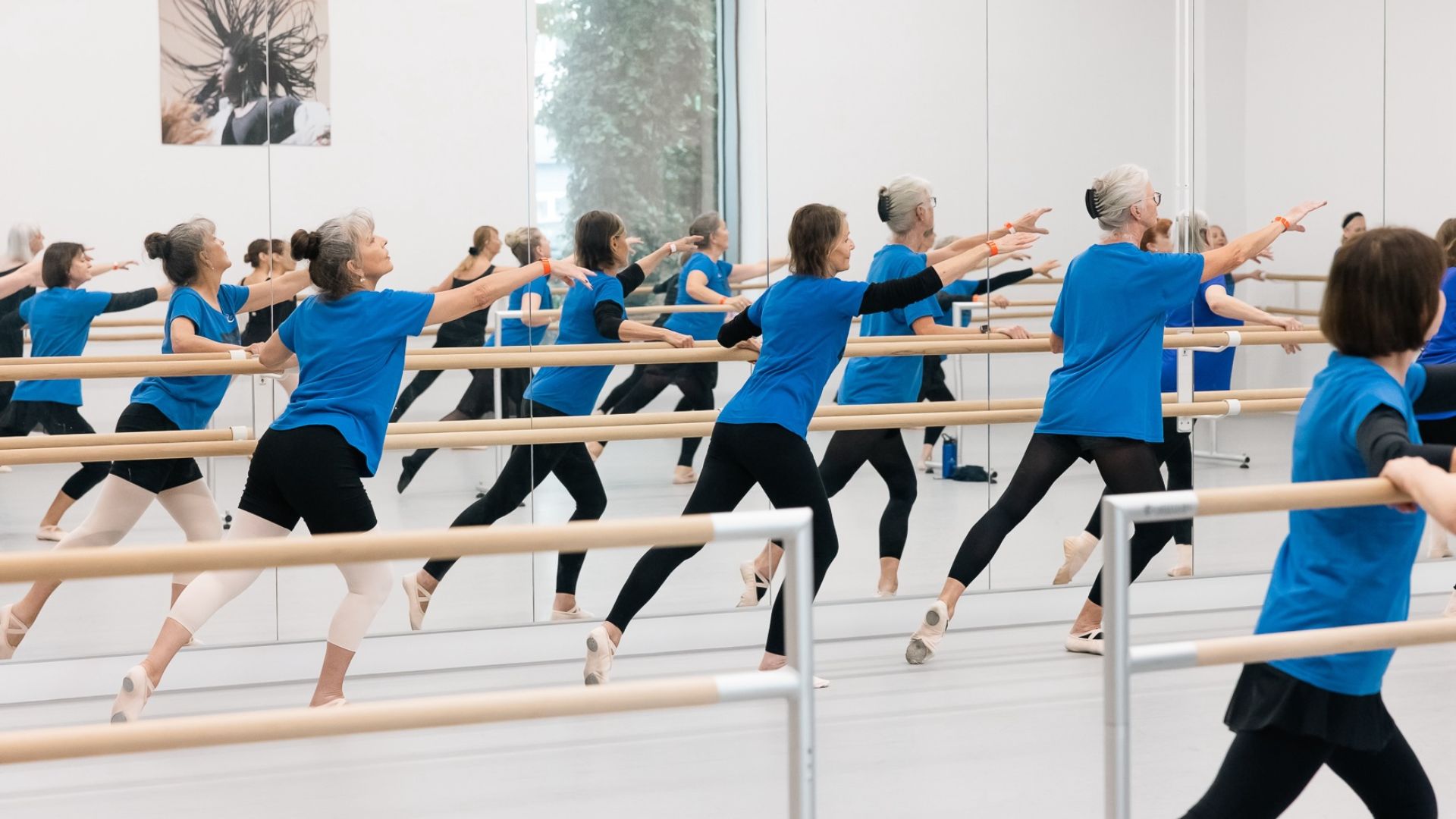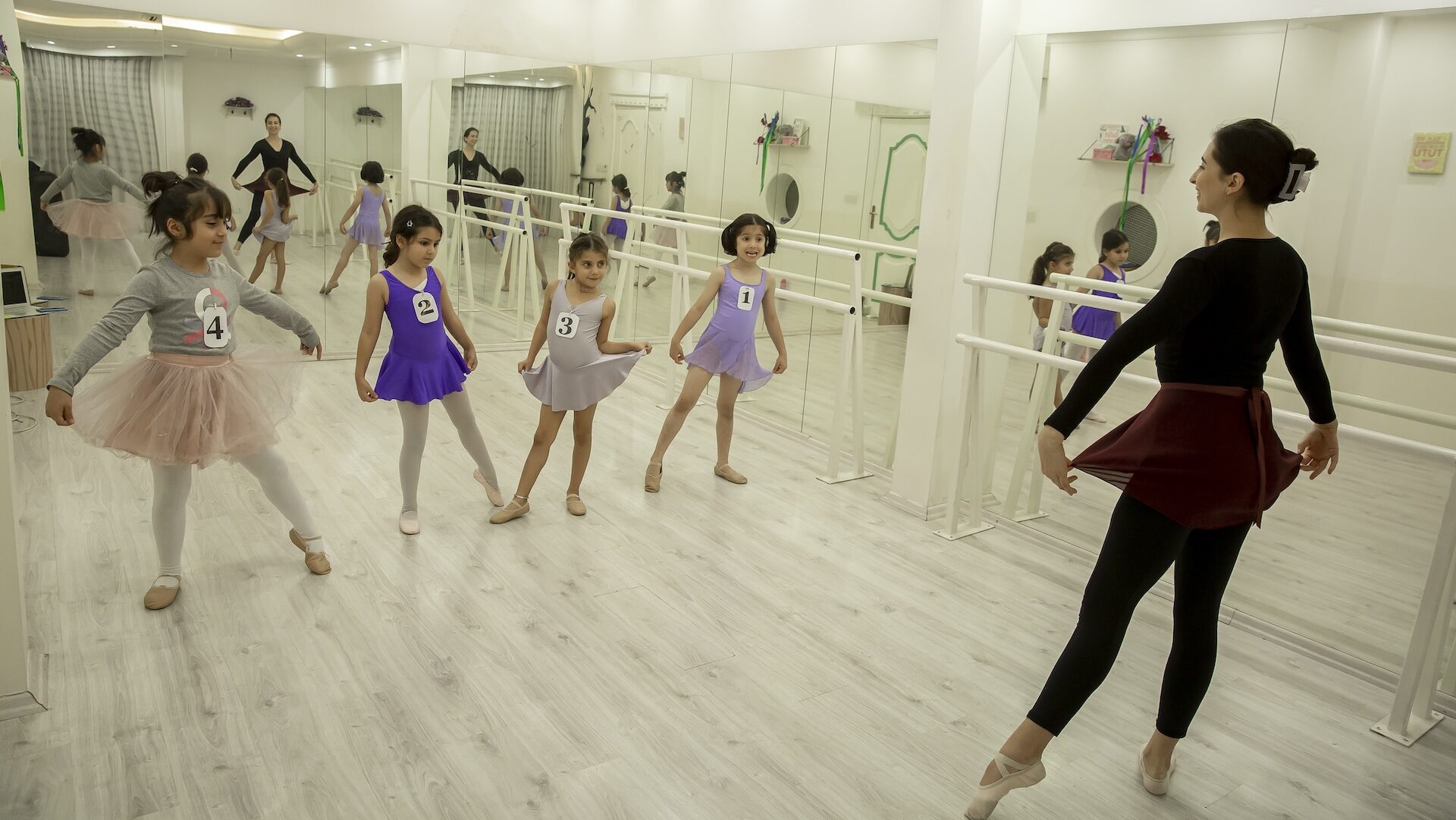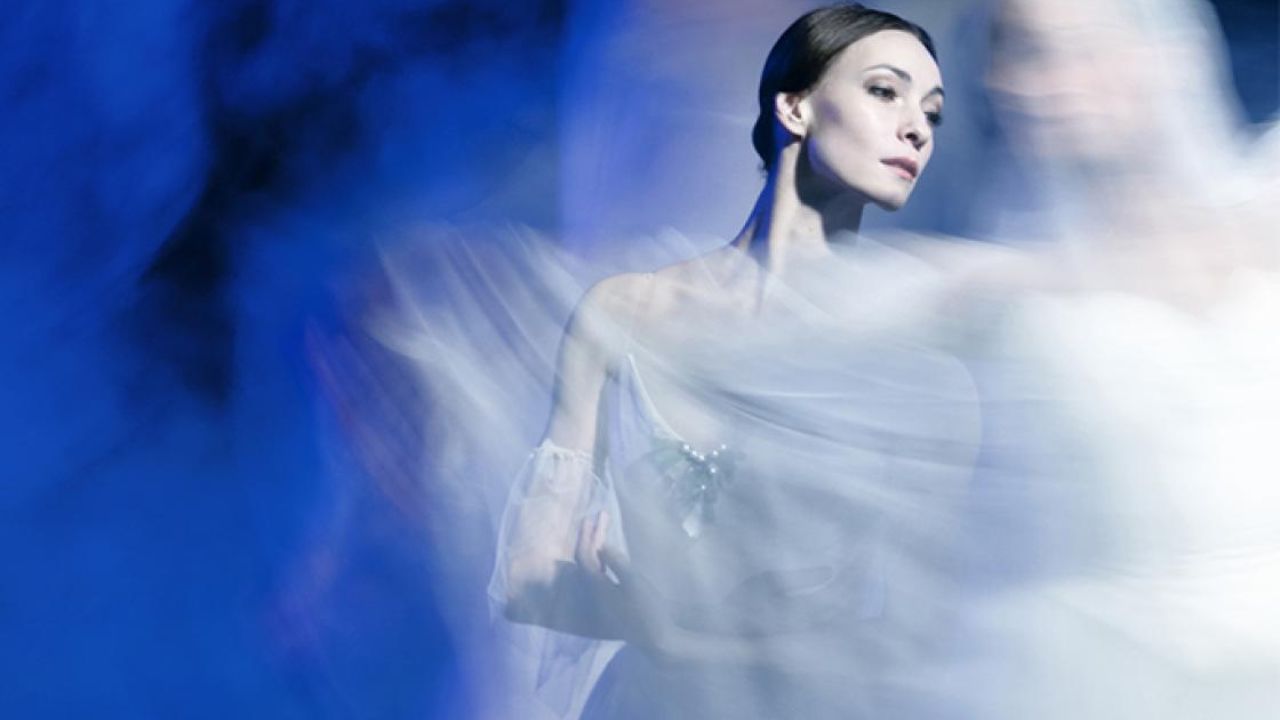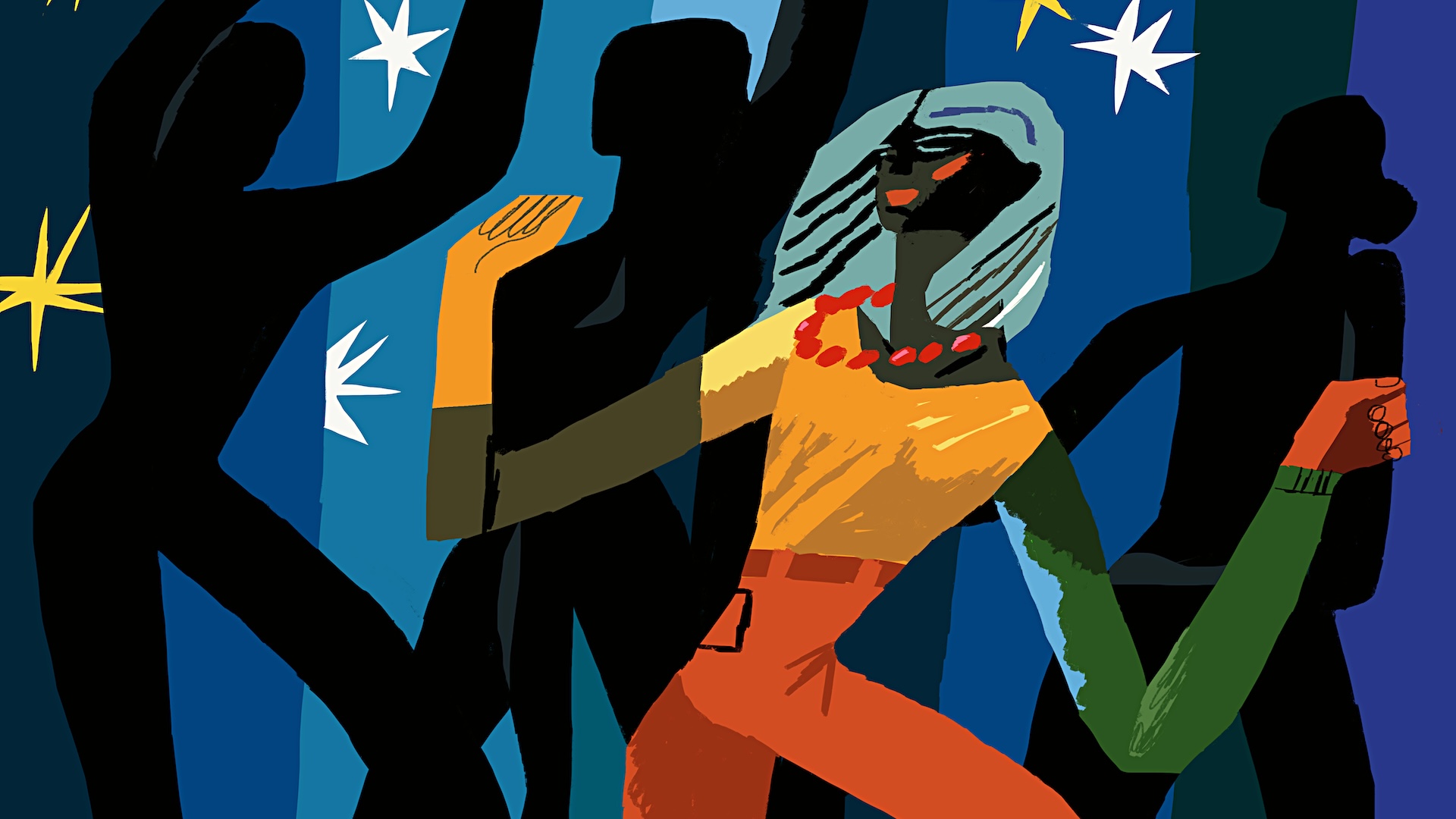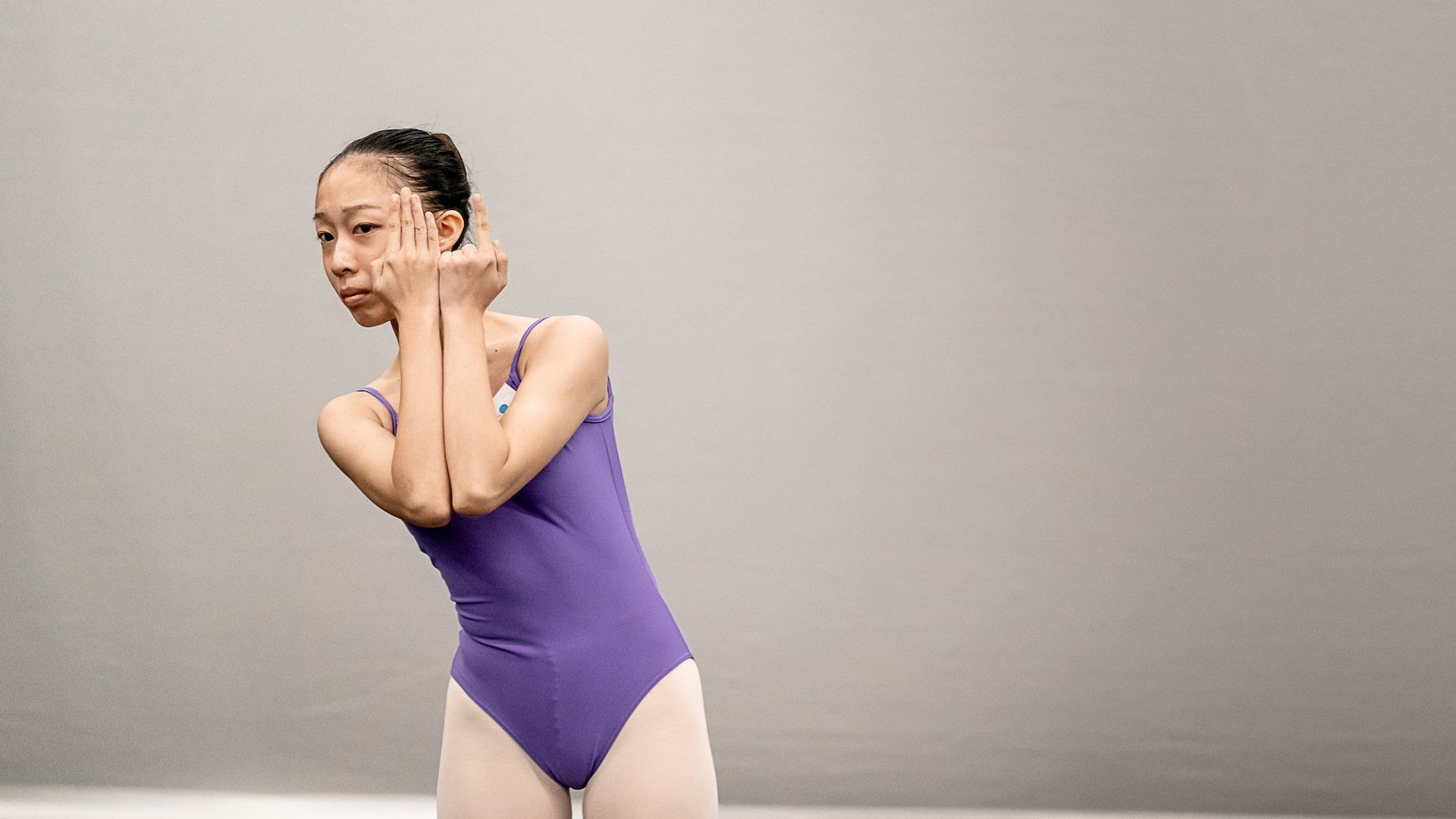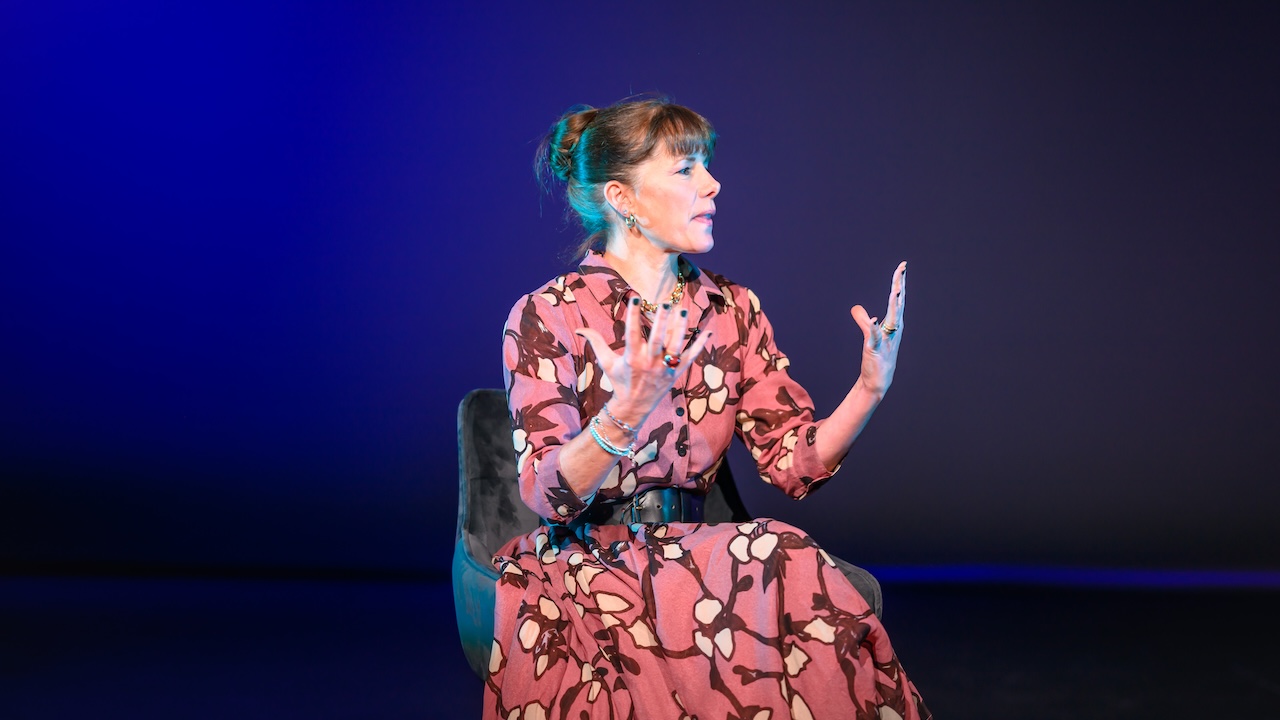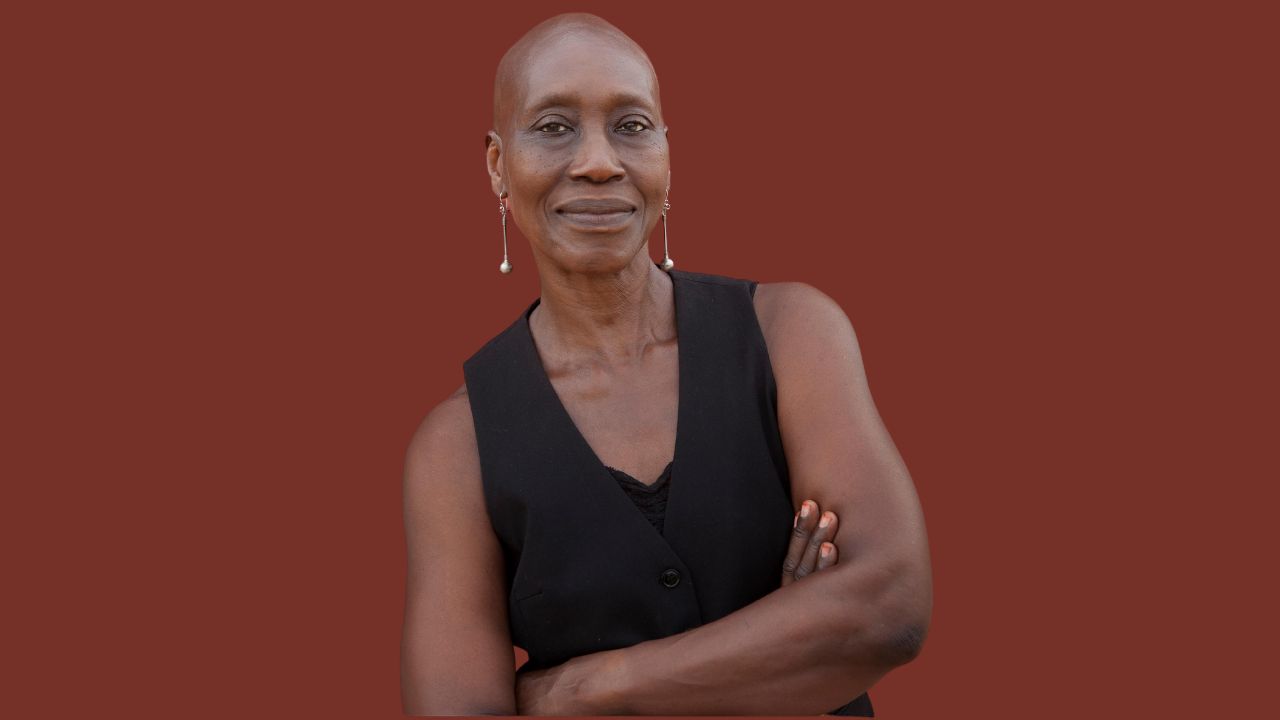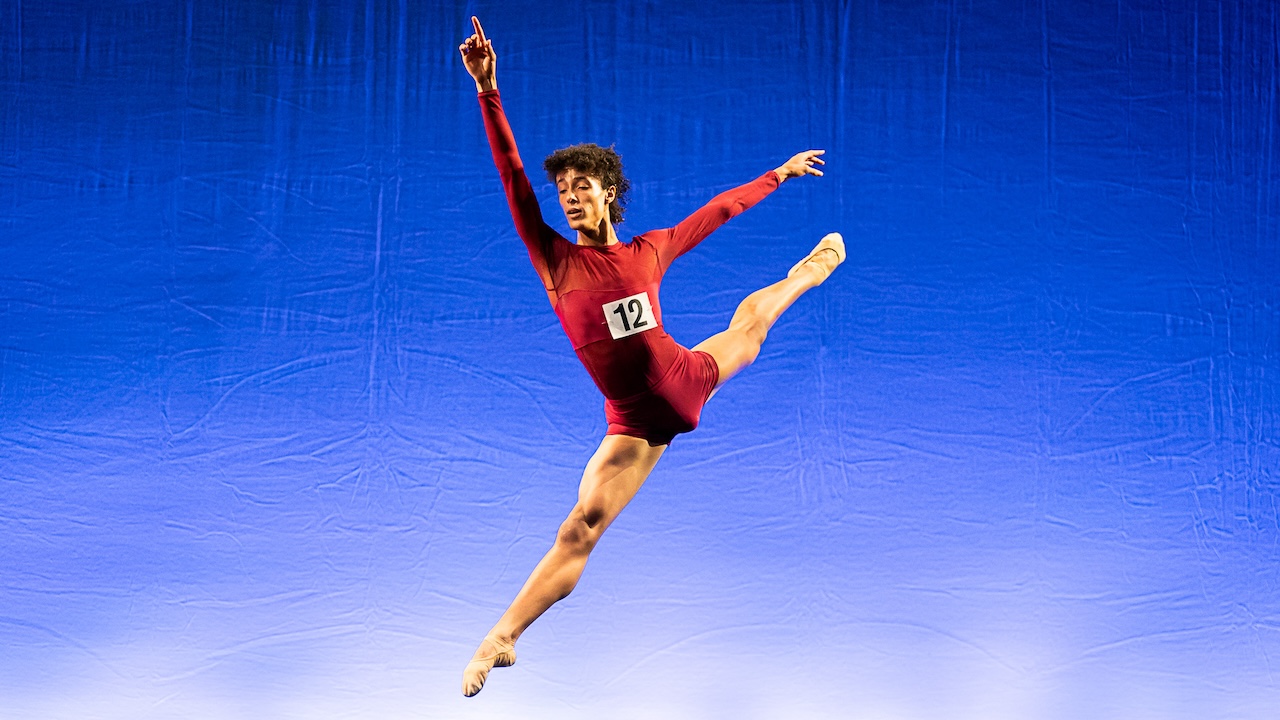‘I always liked dancing, but I never really had the opportunity to do it,’ my mum tells me over the phone. As a child, her parents couldn’t afford extra curricular lessons, and there was next to no formal dance training at her school. ‘That’s why I had to be careful not to push you too much,’ she says. ‘I didn’t want to live through you as a child.’
In 2018, however, mum finally got the chance to experience the joy of ballet for herself. It was an advert on Facebook shared by ‘Miss’ Vonya Plush, a former professional dancer and my own first ever ballet teacher, for Silver Swans classes that inspired her to take the plunge. ‘They were marketed as a way to have fun and exercise in a social and supportive environment,’ she says, adding that the history and nostalgia of reconnecting with Plush was another motivating factor.
Piloted in 2016 and fully implemented the following year, Silver Swans is an RAD initiative making ballet classes accessible to people aged over 50. ‘We’re trying to change the perception of ballet, which can sometimes get a bad rap as elitist,’ says Gia Gray, the RAD’s Head of School and Associate Director of creative projects. ‘We want everybody to feel welcome, regardless of their nationality, gender, background, and definitely their age! I’ve met swans as old as 92 and some who are in their late forties. We don’t turn anyone away.’
Silver Swans is rooted in research from the RAD’s Faculty of Education and their 2012 ‘Dance for Lifelong Wellbeing’ project. The resulting guidance on how teachers can modify lessons to suit the demographic’s needs is now the backbone of the licensing system through which RAD members across the world can become certified Silver Swans teachers.
Plush had just moved back to the UK from Spain when the RAD launched the programme. Before long, she’d signed up to become a licensee, undertaking a day-long course at Birmingham’s Elmhurst Ballet School. ‘I felt like I was at the right age to be embracing Silver Swans,’ she says, sharing that she’s just celebrated her 70th birthday. ‘I’ve danced since I was six, it’s a part of my life. It would be very difficult to give it up.’
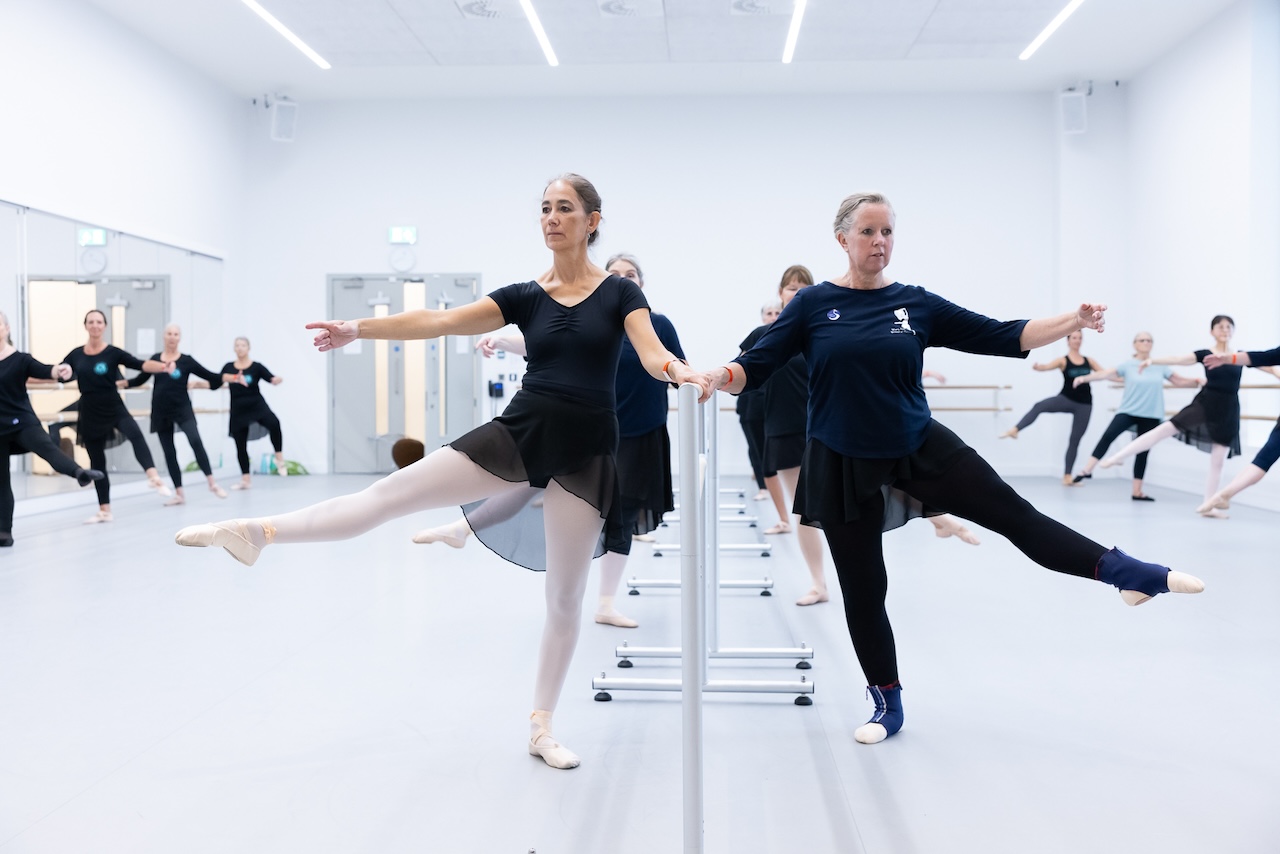
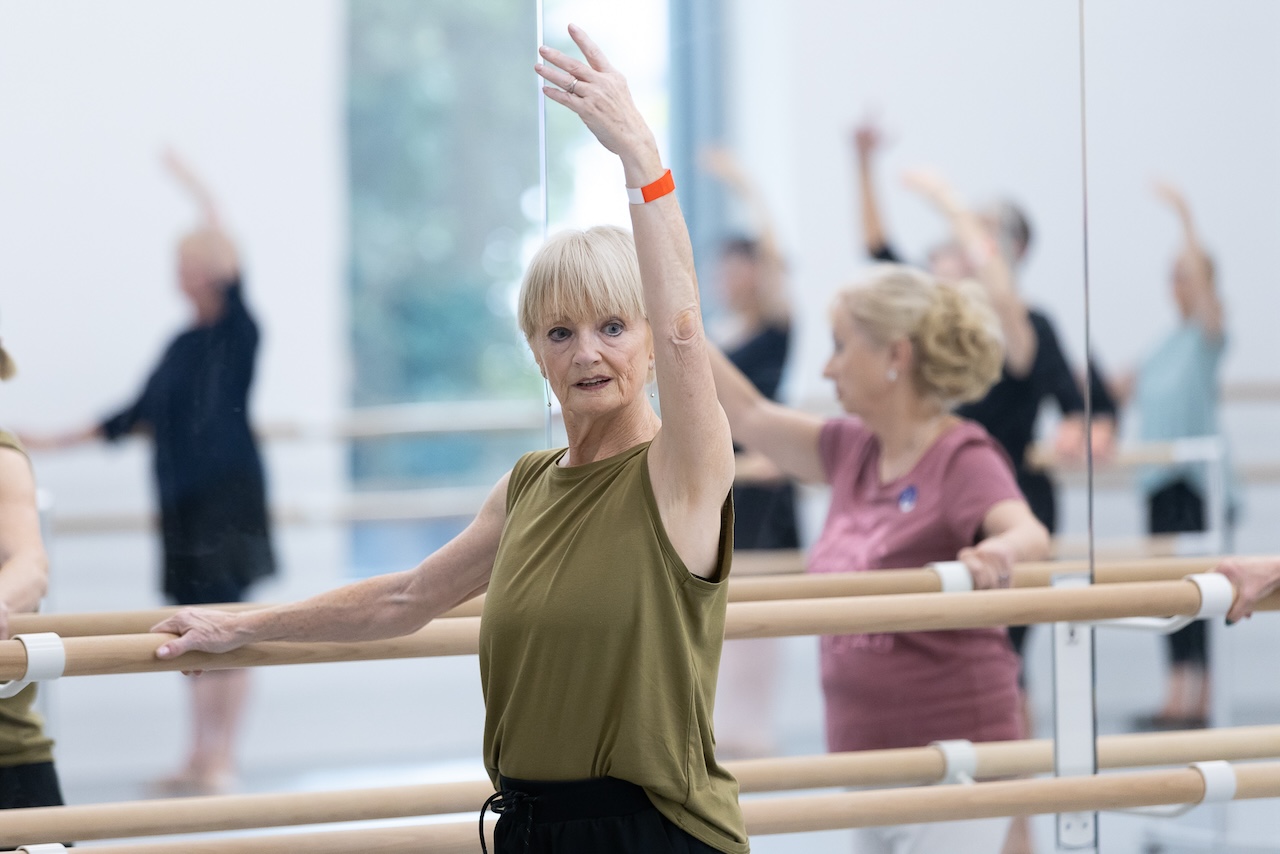
‘We don’t turn anyone away’
Gia Gray
Plush now teaches two Silver Swans classes a week at a church hall in Worcester (when she taught my mum, she was based out of the Norbury Theatre in our hometown of Droitwich, in the Midlands, poetically where I also took my first classes with Plush). ‘I ask the ladies how they are, and if they have any aches and pains they want to tell me about,’ she says. ‘As the class progresses, I can give modifications so that everything is inclusive and safe.’ After a warm up, ballet barre, and pour de bras Plush sets phrases in pairs and groups. ‘We don’t do huge jumps. A lot of my students don’t want to turn too much, because they struggle with balance.’ Instead, she teaches quarter pirouettes, or encourages her dancers to work on relevés without turning at all. ‘I do have some ladies who do whole turns though!’
Towards the end of class, Plush teaches modified excerpts of classical repertoire. ‘We’ve just been working on the Utah Longhorn Ram solo from Still Life at the Penguin Cafe,’ she says enthusiastically. ‘When the students go to the theatre, they recognise choreography they’ve done in class. It brings it to life.’ This was my mum’s favourite part of the lessons. ‘Even though we didn’t have an audience, I could imagine we did,’ she says. ‘I loved it when I didn’t have to think what was coming next. I could just move to music. It felt like a form of freedom.’
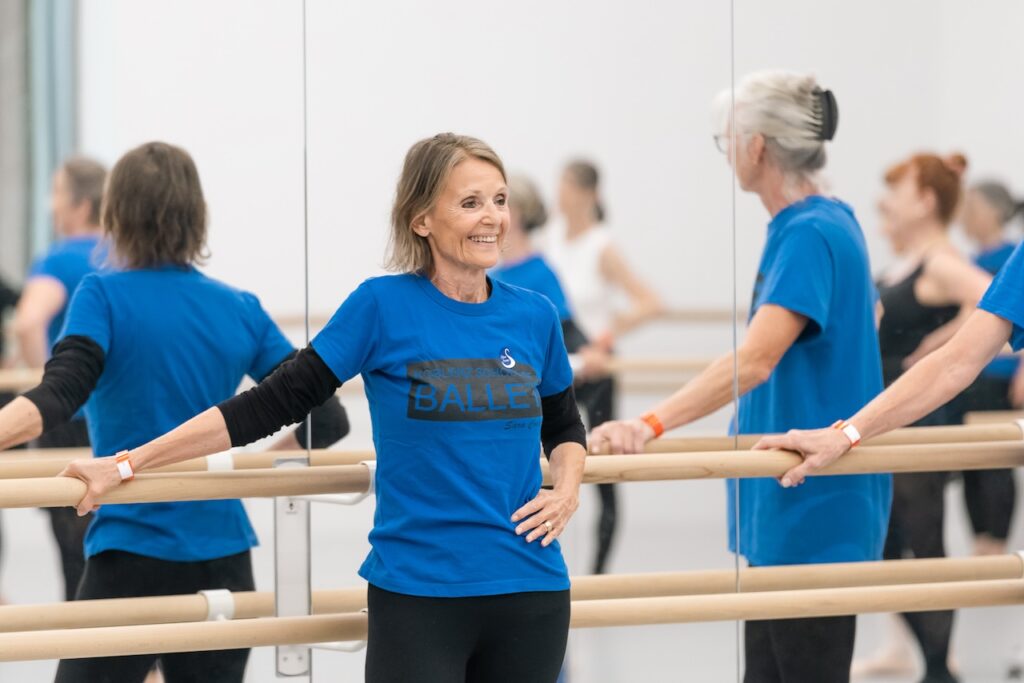
After its inception, Silver Swans quickly took off. ‘When I joined RAD, we only had a couple of Silver Swans classes at our school in London,’ says Gray. ‘This year, we’ve had to add four additional classes to meet demand.’ Beyond the UK, Silver Swans is also taught in over 50 countries around the world including Mexico, the US, Canada, Australia, New Zealand, Hong Kong and China. ‘We really try to make this programme as global as possible,’ says Gray.
I connect with Sarah Cocker, who teaches Silver Swans at her school in Koblenz, Germany. Zooming into one of her sessions, I’m met by a group of 24 dancers, five of whom did ballet as children, while the rest discovered it through Silver Swans. They execute chassé pas de bourrées, soutenus, and balancés, at first following vertical pathways before repeating it in a circle. ‘Swans need a lot of repetition to get the exercise to go in,’ says Cocker, identifying this as the main difference between teaching adults and children. Music also helps them to remember movement. ‘When a certain piece of music came on, I associated it with the exercise we were about to do,’ my mum recalls.
Facilitating memory isn’t music’s only function in Silver Swans. It also ‘reduces stress levels and promotes relaxation,’ says Gray. Overwhelmingly, she hears that older learners prefer classical accompaniment in their classes, which she thinks may be related to their desire to engage fully with ballet as an artform.
After the Koblenz class, the group gathers around the camera. Smiling ebulliently, the effect their hour of dancing has had on their mood is evident. ‘Sometimes it’s hard, and Sarah is very patient with us, but Silver Swans gives us so much pleasure,’ says one student. ‘We all want to keep coming until we can’t move anymore!’ They experience both physical and emotional benefits. ‘Dancing is good for our brains, our muscles and our balance,’ says another dancer. ‘We all feel younger than we actually are.’

Gia Gray
‘Music reduces stress levels and promotes relaxation’
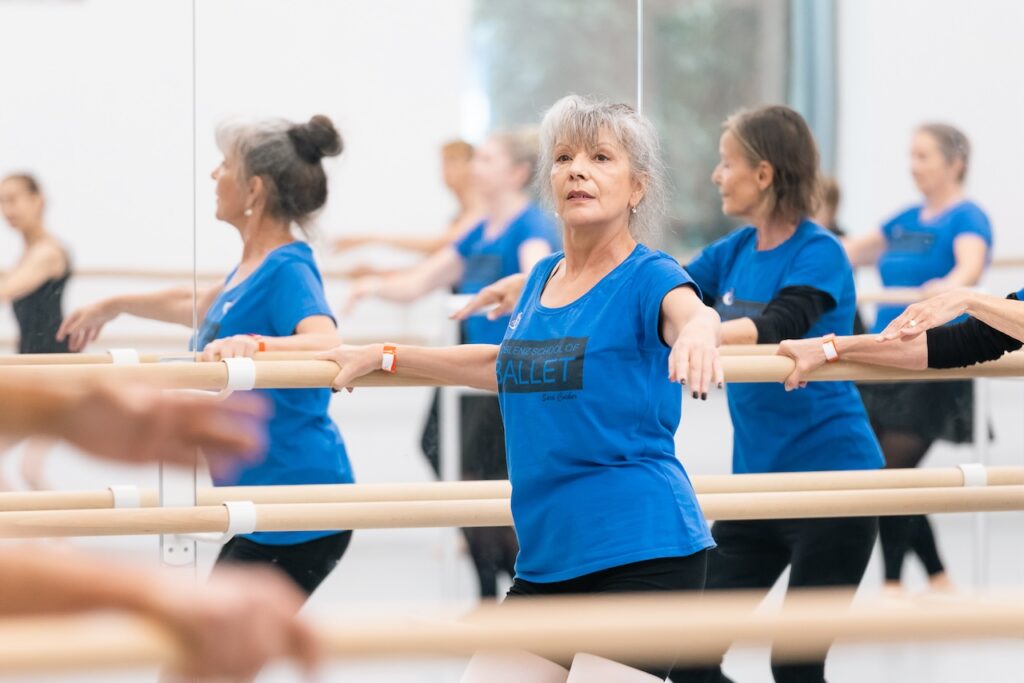
When I ask the Koblenz swans about their favourite part of the class, Ute Ertel-Ulmer, the school administrator, shouts ‘the coffee afterwards!’ Though partly a joke, it highlights the social nature of Silver Swans. ‘Loneliness is a problem for a lot of older people,’ says Cocker, adding that several of her students have lost their husbands. Last year, Gray put on a summer series of Silver Swans classes in London, as she realised students didn’t want to stop their routine during the academic holidays. ‘One swan told me it saved her life,’ she says. ‘Her mum had passed away, and having somewhere to go every day brought her out of a really dark place.’
In October 2023, Silver Swans participants from all around the world met at RAD HQ in London to celebrate ‘Silver Sunday’, the UK’s national day for older persons. ‘It was an incredible opportunity for people to be together and celebrate all of their hard work,’ says Gray. Routines performed by Silver Swans groups were a highlight of the day. ‘Sarah put a lot of thought into our piece,’ says one of the Koblenz swans, describing their tea party themed number.
While they admit that they could never have imagined performing when they first started taking classes, the Koblenz swans thoroughly enjoyed the experience: they were invited to perform the routine again at a local care home’s Christmas party. ‘I loved people coming up afterwards and saying how great we were!’ one of them says proudly. One of Cocker’s students who has Parkinsons also took part. ‘That made us really proud, it was a big step for her,’ says Ertel-Ulmer. ‘She shakes more now than previously, but she still dances,’ adds Cocker. ‘Coming to London showed that it doesn’t have to be a backwards journey with an illness like that.’
When asked if she’d like to go back to Silver Swans classes, my mum says that ‘if it hadn’t been for covid I’d probably still be going,’ before throwing the question back at me. ‘Don’t you miss dancing, Emily?’ Having trained professionally until I was 21, this is always a difficult question. ‘If I went back, I’d just get upset about all the things I can’t do any more,’ I say. ‘That’s just getting older, sweetheart. That shouldn’t stop you if you enjoy it,’ mum interjects. ‘Dance like nobody’s watching. Perhaps that’s the good thing about being over 50, you start not to worry about what people think.’ My mum’s life lesson is a perfect summary of what Silver Swans is all about.
‘We all want to keep coming until we can’t move anymore!’
Silver Swans student in Koblenz
WATCH
Peak Ballet’s Silver Swans perform for the RAD’s Silver Swans Celebration in October 2023
Silver Swans Workshops
The RAD’s Silver Swans is an exciting opportunity for experienced ballet teachers to expand their expertise and tap into the growing adult dance market. Silver Swans Workshops equip you to deliver licensed ballet classes aimed at over 55s.
Emily May is a British-born, Berlin-based arts writer and editor specialising in dance and performance.

